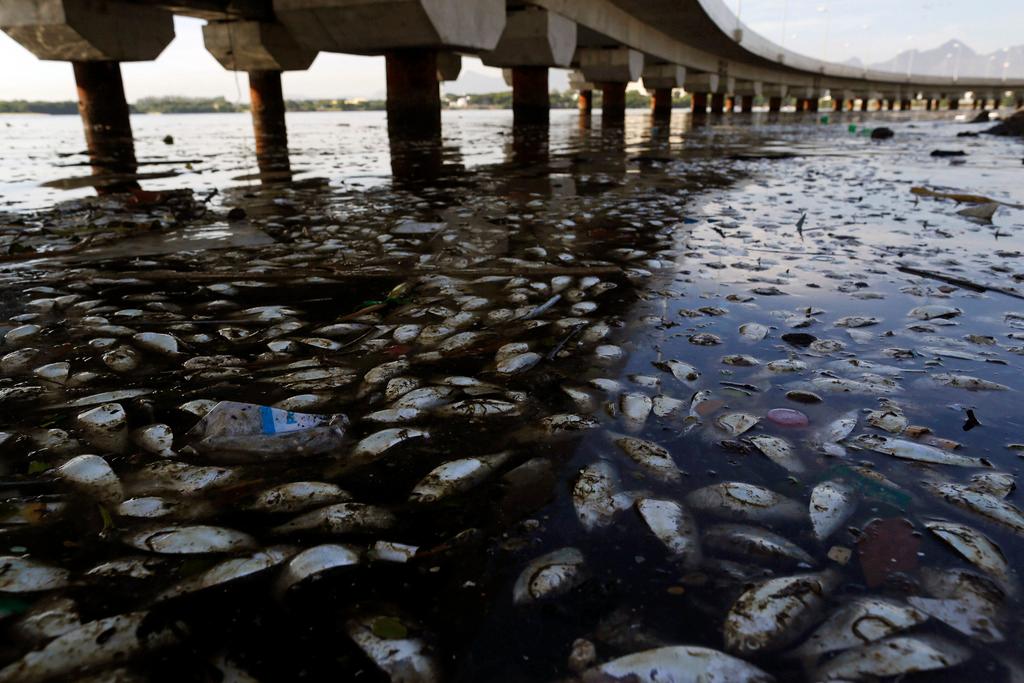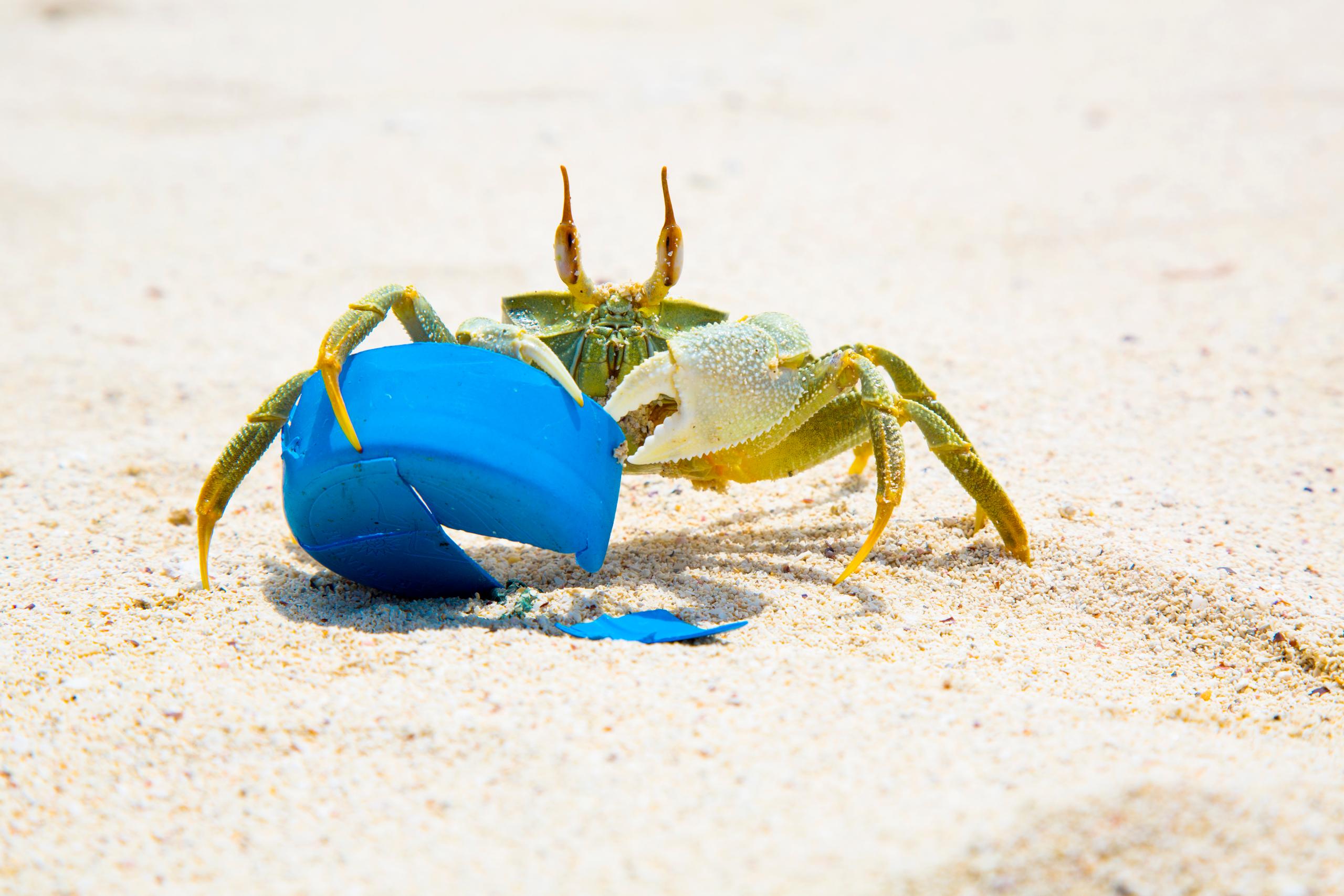
Swiss help cleanse Rio’s polluted waterways

Rio de Janeiro's Guanabara Bay, the site for the 2016 Olympic sailing competitions, has been criticised by athletes, journalists and sports officials for its polluted waters. The problem wasn't solved in time for the Games opening on August 5 but several initiatives, including Swiss support, have been contributing towards the environmental clean-up.
Switzerland has been carrying out a series of campaigns in Brazil looking at the need to preserve water. Rio’s Guanabara Bay has been the focus of a special campaign, ‘An ocean without trash, a peoples’ ocean’, organised by Swissnex Brazil, a research and education collaboration office, and Swissando (Presence Switzerland). In October and November 2015, they held various scientific, educational and artistic events in Rio and Niterói to discuss the need to tackle the issue of trash accumulating in the oceans.
Swiss officials plan to continue such awareness-raising activities well after the athletes return home from the Rio Games.

More
Debris ahoy! Transforming ocean plastic into energy
“We are developing a programme for the House of Switzerland [reception centre run by Presence Switzerland during the Games], which will be transformed for one day into a home providing clean water and energy. We have also launched events with Swiss and Brazilian start-ups that are working on this topic, and are organising conferences and activities,” explained Swissnex Brazil’s executive director Malin Borg.
Its biggest event to date was November’s stop-off in Rio of Race for Water, a Swiss-led research expedition which last year completed a round-the-world sailing tour studying the impact of plastic pollution on the global marine environment.
Race for Water project initiator Marco Simeoni opened a photo exhibition on their expedition, met with young people from Projeto Grael – a group that promotes sailing and environmental activities – and held a debate on the water pollution in Guanabara Bay at the Biblioteca Parque Estadual public library.
Simeoni said the garbage in the bay was a major problem but solutions were underway.
“The Brazilian government and some local associations are working hard on this issue. But there is so much debris it’s impossible to eliminate it all from the bay before the Games start,” he said.
Waste into electricity
The Swiss adventurer and environmentalist said the case of Guanabara Bay shows that it is unrealistic to clean up the oceans after rubbish has already entered the waterways.
“The solution is to treat the waste upstream before it enters the water by giving it value in converting the garbage into energy,” said Simeoni.
This year the Race for Water project has been following up its round-the-world expedition to promote pilot projects that turn waste into electricity via ultra-high temperature hydrolysis (gasification) processes. It is working with companies that create prototype units with reactors that burn waste at 1,200-1,400 degrees Celsius without oxygen. A small five-tonne unit can transform 1,680 tonnes of plastic waste a year into 3,500 megawatt hours of energy.
Other advantages are that all plastic can be burnt together, rather than having to be separated and cleaned, and there are no toxic emissions.
“This approach, which is inspired by social entrepreneurship, will not only reduce plastic pollution in the oceans but create jobs for those in need. It has many benefits,” said Simeoni.
Difficulties
He was very positive about the stop-off in Rio but stressed that there were many local difficulties.
“It was very rewarding,” he said. “We got a good result in terms of raising awareness although much work remains to be done due to the lack of knowledge about this problem. There are structural barriers, such as local trash collection and recycling systems, which are not as well developed in South America as in Switzerland, and economic barriers, with many people living in poverty.”
Borg said despite these limitations the ‘An ocean without trash, a peoples’ ocean’ campaign had managed to reach a huge number of people from many different backgrounds, from researchers and students to athletes, children, Niterói residents and business people.
“The conference at the Biblioteca Parque Estadual public library was extremely fruitful as researchers, journalists, politicians and activists took part who are not normally involved,” he said.
“The result is new ties between Swiss and Brazilians, and also within Swiss and Brazilian groups who have been working in this same field for years but didn’t know each other.”
Polluted waters
Brazilian municipal, state and federal governments promised that the $12.2 billion expected to be spent on the Olympics, which run from August 5-21, would include the construction or expansion of essential environmental infrastructure and other social improvements.
Those promises included reducing the flow of trash and raw sewage into the city’s Guanabara Bay and Rodrigo de Freitas Lagoon as well as the construction of sewage infrastructure on lagoons and swamps adjacent to the Olympic Park and Village.
Water quality remains low with sailors, rowers, swimmers and other water sports competitors criticising venues for high concentrations of bacterial and viral pathogens. Sailors also worry floating trash will slow or damage their boats.
Organisers have tried to provide reassurance, saying a seasonal lack of rain during Rio’s southern hemisphere winter will prevent much of the sewage that pollutes local waters from being flushed into Guanabara Bay.
Efforts are also being made to reduce the plastic, trash, logs and other floating debris that could damage or slow boats.
“The water’s not ideal but it’s too late to worry,” said Erik Heil, a sailor with the German Olympic team who was treated for a flesh-eating bacteria in Germany last year after racing in Rio.
Translated from Portuguese by Simon Bradley

In compliance with the JTI standards
More: SWI swissinfo.ch certified by the Journalism Trust Initiative

























You can find an overview of ongoing debates with our journalists here . Please join us!
If you want to start a conversation about a topic raised in this article or want to report factual errors, email us at english@swissinfo.ch.